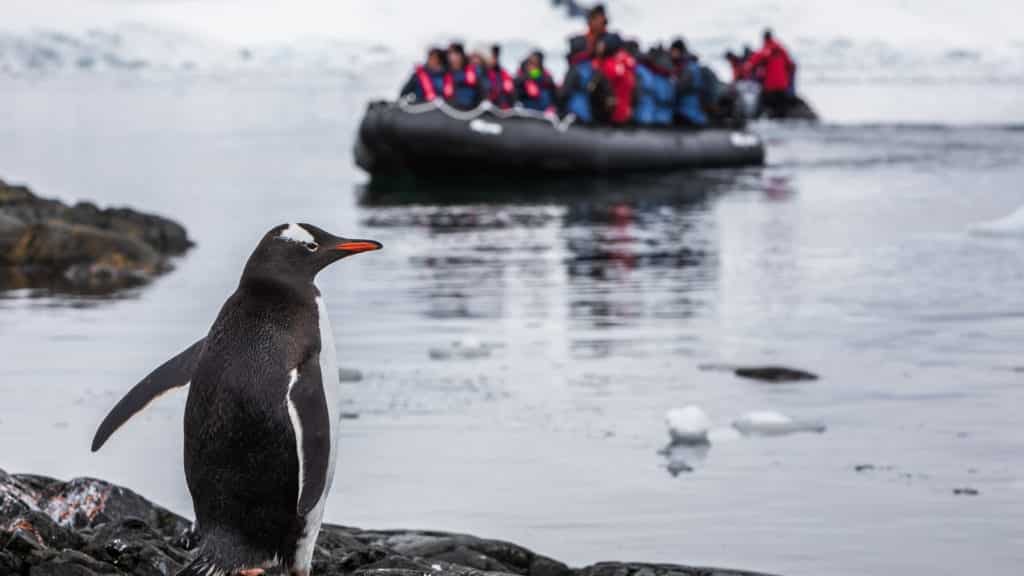World Migratory Bird Day is all about appreciating our avian friends and the incredible journeys they make every year. This year there are two opportunities to celebrate our feathered friends, on 13 May and 14 October, reflecting the cyclical nature of bird migration with varying migration periods in each hemisphere. For us, it’s a great opportunity to raise awareness about the importance of conserving and protecting migratory birds and their habitats.
Migratory birds are the ultimate explorers, whose spirit of adventure knows no bounds! Every year they embark on extraordinary journeys spanning vast distances, continents and hemispheres.

Arctic Terns
Averaging a weight of only 110 grams and 34 centimetres in length, don’t let Arctic Terns fool you. Every year they fly over 19,000 kilometres from the Arctic to Antarctica for the summer. Over a typical lifespan of up to 30 years, one Arctic Tern can fly an incredible 2.4 million kilometres.
Luckily, they are able to sustain themselves for these long journeys because they are excellent hunters, gently hovering over the ocean before plunging themselves deep into the water to catch fish, crustaceans and other food.
Unlike us, migratory birds don’t set off on their annual travels for merriment, adventure and enrichment – they undertake these journeys to find food and habitats for breeding, with the necessary climates. And it’s not always smooth sailing. The journey itself can be perilous, and climate change is having an increasing impact on migration patterns and the ability for birds to locate suitable habitats and food sources. Sadly, these factors have led to declining populations of many migratory bird species.
Read on to learn about some of our initiatives to help conserve and protect our avian friends for future generations
1. Protecting Fragile Habitats
Aurora is proud to have been one of the first operators to become a member of both the International Association of Antarctica Tour Operators (IAATO) and the Association of Arctic Expedition Cruise Operators (AECO). These organisations promote responsible tourism and work to ensure that companies operating in the polar regions have minimal impact on the environment.
As members of these important organisations, we are committed to following their guidelines and regulations to protect the fragile ecosystems we visit. These include:
- Limiting the number of visitors to certain areas
- Controlling the number of expeditioners on shore landings at any given point
- Ensuring that waste is properly disposed of
- Stringent biosecurity measures including cleaning and vacuuming expeditioners’ outerwear and using Virkon disinfectant for muck boots, walking poles and tripods after each landing
- Keeping our distance from wildlife, and following special rules for sensitive seabirds including breeding petrels
Avian Flu
The avian influenza virus (HPAI) H5N1 strain is extremely contagious amongst birds and has been causing widespread deaths of seabirds across the globe. To stop it spreading to Antarctica last season and to mimise our impact on the environment, Aurora doubled down on precautions, educating expeditioners about the new measures and our responsibilities, and prohibiting sitting or lying on the ground or snow, or from putting equipment or backpacks down – especially near nests, breeding adults, penguin highways and haul out sites. The Expedition Team was also vigilant for signs of the virus in wildlife colonies while scouting landing sites.

2. Citizen Science Program
We participate in seven Citizen Science projects on expeditions across the globe, which we encourage expeditioners to get involved in. By providing invaluable data to the scientific community, you can make a real difference and become an ambassador for the planet when you get home.
One of the projects we operate is called eBird, which involves doing seabird surveys at sea or landing sites. The data you collect with the help of ornithologists and naturalists in your Expedition Team will help scientists monitor bird species, breeding cycles and migration patterns, and will contribute to conservation decisions and inform research.
3. Education and Enrichment
Whether you’re enjoying a guided hike, Zodiac cruise, activity in our comprehensive program or in the lecture theatre, our Expedition Team are on hand to help you gain a better appreciation of the destinations we visit.
Our Expedition Team is made up of specialists who are experts in their fields, including ornithologists and naturalists, who will teach you about different seabirds and the importance of protecting them.
4. Responsible, Respectful Travel
Climate change poses a significant threat to migratory bird populations. We take our responsibility seriously, and care about reducing our footprint environmentally. We are proud to be 100% Climate Neutral, offsetting our adventures through hand-picked regenerative projects.
Thanks to the innovative Ulstein X-BOW® design on our purpose-built ships, the Greg Mortimer and the Sylvia Earle, they are able to operate with low energy consumption and high fuel-efficiency, and a significant reduction in emissions.
As a company, we have adopted eco-friendly practices to minimise pollution and our impact on the environment, including efficient energy, water and waste management, reduced single-use plastics, and eco-friendly products and cleaning onboard and in our head office.
Looking towards the future, we are actively working towards B-Corp Certification as early as 2024. This certification recognises companies that meet high standards of social and environmental responsibility, and will hold us accountable to even higher standards and provide us with a framework for continuous improvement.
Interested in how we're doing MORE for the planet?
Sustainability in Action Plan
We have an ongoing commitment to responsible, respectful travel. We are curious, we are passionate. We care about reducing our footprint environmentally. We are taking real actions for the care of the planet. We are doing MORE to help make a positive impact on the planet.


